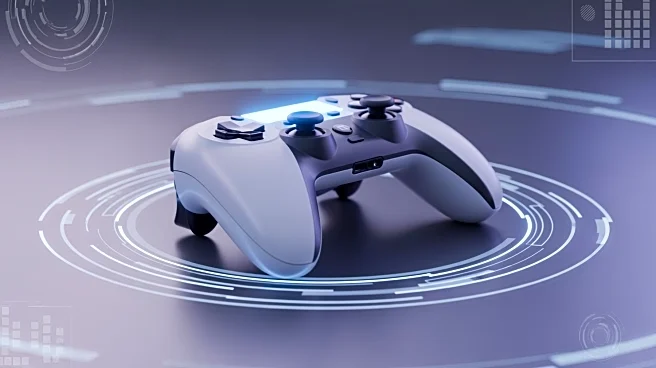What's Happening?
A recent study has explored the relationship between habitual video gaming and multitasking performance, revealing that individuals with extensive video gaming experience tend to perform better in multitasking environments.
The research involved 59 participants, primarily military officer cadets, who were assessed on their short-term memory and multitasking abilities. The study utilized a visual short-term memory task and the openMATB, a multitasking performance assessment tool. Participants were categorized based on their video gaming experience, and their performance was analyzed using structural equation modeling. The findings suggest that video gaming experience is a predictor of enhanced multitasking performance, although the role of cognitive capacity in this relationship remains inconclusive.
Why It's Important?
The study's findings have significant implications for industries and sectors where multitasking is crucial, such as aviation, surgery, and military operations. By highlighting the potential cognitive benefits of video gaming, the research suggests that gaming could be used as a training tool to improve multitasking skills in professional settings. This could lead to the development of targeted training programs that incorporate video gaming elements to enhance cognitive performance. Additionally, the study contributes to the ongoing debate about the cognitive effects of video gaming, providing evidence that gaming can have positive impacts on certain cognitive abilities.
What's Next?
Further research is needed to explore the mechanisms underlying the relationship between video gaming and multitasking performance. Future studies could investigate the specific cognitive processes enhanced by gaming and how these can be harnessed in professional training programs. Additionally, exploring the role of different types of video games and their impact on cognitive skills could provide more nuanced insights into how gaming can be used effectively in various fields.
Beyond the Headlines
The study raises questions about the broader cultural perceptions of video gaming and its role in society. As gaming continues to grow in popularity, understanding its potential benefits could shift public opinion and influence policy decisions related to education and workforce development. Moreover, the ethical implications of using video games as training tools in high-stakes environments warrant careful consideration, particularly regarding the balance between entertainment and professional development.









